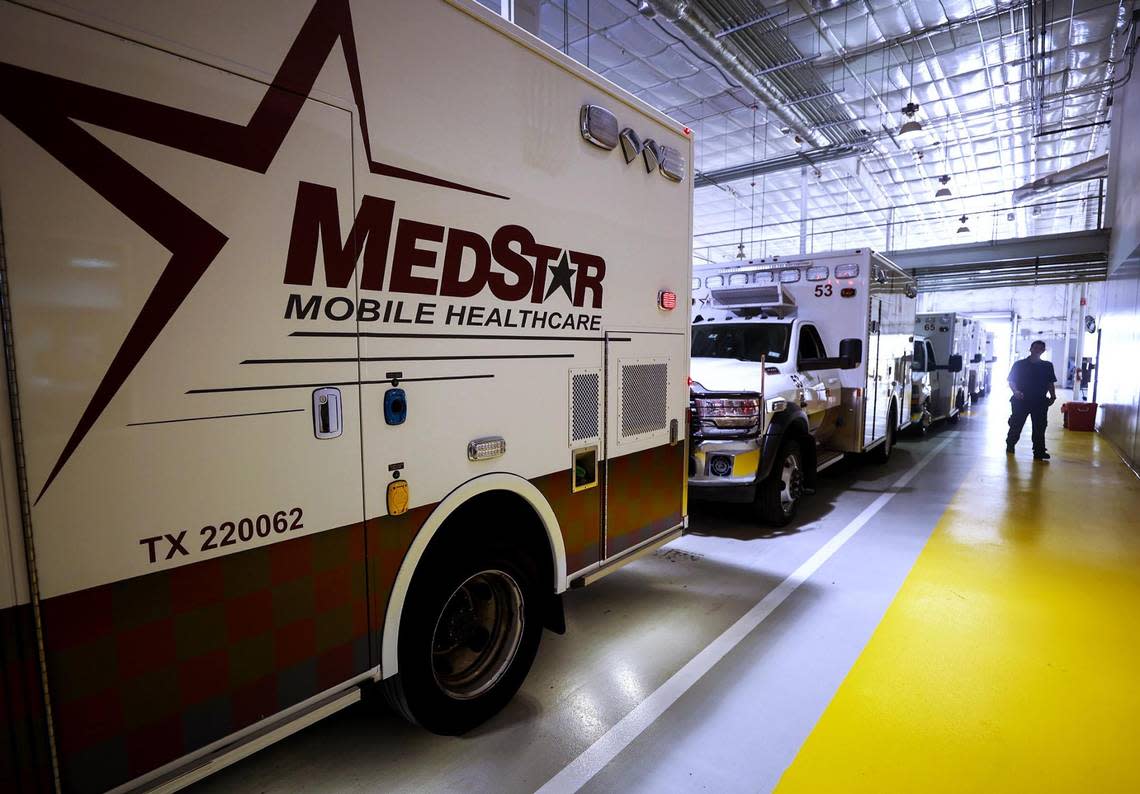Fort Worth plan to take over Medstar is sound — as long as these issues are addressed | Opinion
In the business world, any merger or acquisition is complicated: combining systems, transferring employees and dealing with myriad unexpected issues that arise.
In government, particularly a critical area such as emergency response, it’s even harder. So, as the city of Fort Worth prepares to incorporate much of Medstar, the ambulance provider, into the Fire Department, it could be a bumpy ride.
City leaders have studied options for months. Those options included paying more into Medstar, contracting with a private vendor, creating a new city agency or folding emergency transport into the Fire Department. A special committee has settled on the final option and will meet Tuesday to iron out more details before an expected City Council vote May 21.
The committee settled on the right plan. Done right, it will improve response times, give the city firmer control of a vital function and make better use of the Fire Department infrastructure. But there are plenty of potholes ahead in the transition that elected leaders and city staff must anticipate and try to avoid. Every decision will have financial implications, and while those are important, the focus must remain on better service for residents when they need it most.
Medstar was created in 1986. Its problem in recent years has been collecting enough payment from insurers or patients to fund the agency. It faces a perennial shortfall unless Fort Worth pays more to sustain it or other changes are made. If the transition is made, more than 500 employees may join the city workforce, Medstar has said.
Among the complications of unwinding Medstar is the potential impact on the Fire Department. It’s a modern blessing that the city simply has many fewer blazes that require response, thanks to safer construction standards, alarms and sprinkler systems.

But shrinking the department isn’t much of an option. The ability to respond to fires and other emergencies requires a certain level of staffing and equipment, and any Fort Worthian who urgently needs a fire response wants to know that one will respond quickly.
Adding emergency transport — not to be executed by firefighters but by EMTs transferred from Medstar — makes better use of department facilities. There are simply more firehouses in more places than current ambulance dispatches, and that should improve the time needed to get to a call and ensure a good distribution of resources. The city estimates that it can shave 5.5 minutes off the typical 911 response time.
Done right, it can mean better coordination, too. Firefighters would continue to provide emergency response and paramedic service, but working under one roof should reduce duplication and overlap in responses.
The financial issues for the transition remain unclear. If Fort Worth absorbs Medstar assets, it could be $10.5 million or $23 million, depending on whether Medstar employees become sworn officers. If Fort Worth does not take Medstar assets, the cost is estimated at either $50.5 million or $63 million.
City analysts said at a recent meeting that the required administrative positions are about the same among any of the options. The biggest cost differential may be determined by whether the transferred employees become members of a sworn-in force, and thus probably unionized, or civilian workers.
One crucial area to consider will be the impact to the city’s pension fund. Fort Worth worked for years to strengthen the fund, which faced a $1.6 billion shortfall before the city and employees adopted, in 2019, a compromise requiring workers and taxpayers to contribute more. The additional employees shouldn’t break the bank, but pension obligations mount over years. Careful attention and planning now will help avoid headaches later.
Fort Worth must also assure that the new system is fair to the 13 smaller cities who have been partners in Medstar. Most will probably contract with Fort Worth for services, and their residents’ needs are important, too.
No one wants to look up in five or 10 years and find that key issues were missed and emergency response suffered for this change. Thorough attention and scrutiny — and anticipation of possible unexpected challenges — will help avoid that fate.
